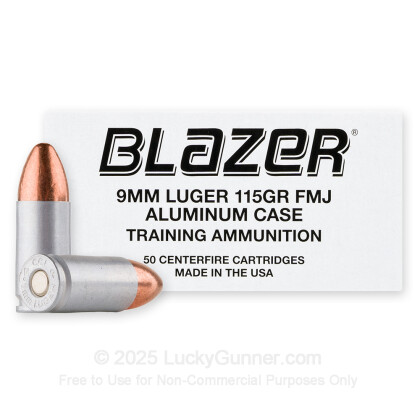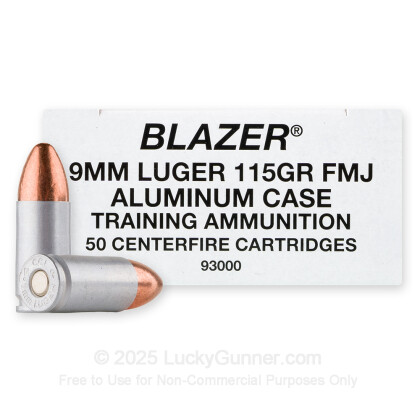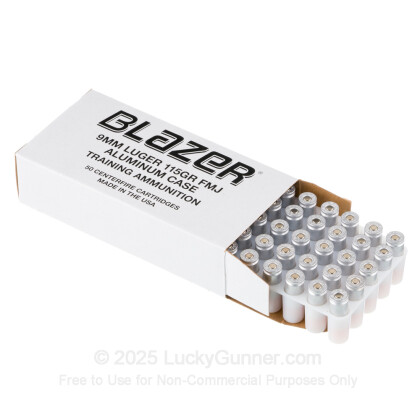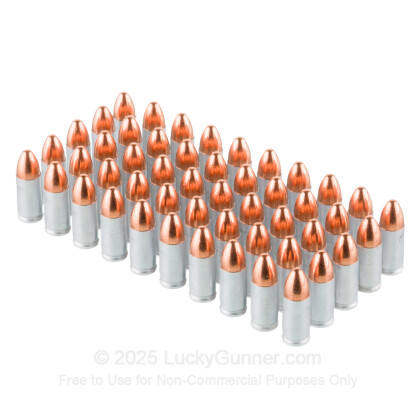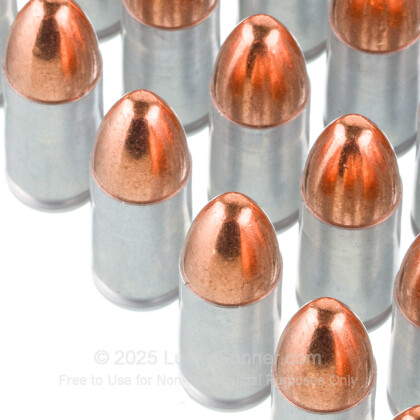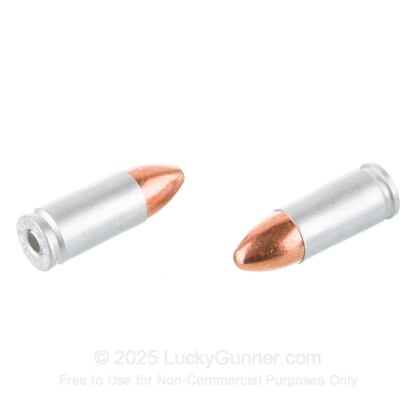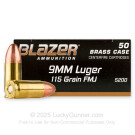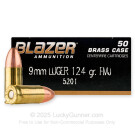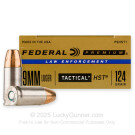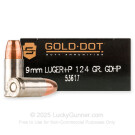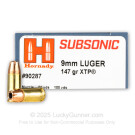Ask a Question
Our customer service team has published this Q&A information as a free service to the shooting community.
Please note that LuckyGunner.com expressly disclaims any and all liability with regard to how the shooting community
might use this Q&A information. See Terms of Use for more details.
Posted On: 1/26/2022
By: Alex
A: Thanks for reaching out Alex! This cartridge is loaded with a nonmagnetic projectile: lead core, gilding metal jacket. If your range only prohibits magnetic ammo because they're concerned about the bullets, then you should be just fine with this ammo. But there's an important exception to consider here. You see, it's easy for ranges to remove steel cases from whatever they sweep off the floor at the end of the day – all they need is a big magnet. Aluminum is not magnetic, however, which greatly complicates the process of sifting the worthless aluminum cases from the valuable brass ones. For no other reason than convenience, some ranges do in fact prohibit aluminum cases. Fair enough! That's why it's good to check ahead of time whether your preferred range(s) will allow you to fire aluminum-cased ammo with nonmagnetic bullets like this.
Posted On: 12/31/2021
By: Larry duke
A: Thanks for reaching out Larry! I certainly doubt that this ammo will damage your suppressor, although there are better choices for a suppressed 9mm pistol – ammo that will create less report for your suppressor to muffle down. We just got Winchester Super Suppressed back in stock – perfect for your plans:
luckygunner.com/9mm-147-grain-fmj-encapsulated-winchester-super-suppressed-500-rounds
Ammo Inc. is a newer American ammo manufacturer, but our customers have said good things about their /stelTH/ label ammo:
luckygunner.com/9mm-165-grain-tmj-stelth-subsonic-50-rounds
Posted On: 11/22/2021
By: nathan harrison
A: Thanks for reaching out Nathan! I wouldn't advise using this ammo for personal protection, barring an emergency when no better alternative was available. Blazer's aluminum cased ammo is great for target shooting, and it could certainly neutralize a threat. But ammo manufacturers typically load target ammo like this under the assumption that a failure to feed and extract will amount to an inconcenience – as opposed to a life-threatening malfunction.
The most significant difference between target shooting and self-defense ammo is the bullet. A range cartridge like this has a full metal jacket (FMJ) bullet. It's an economical bullet design, and it will penetrate soft tissue deeply enough to access a vital organ. What it will not do, however, is expand, and you really want terminal expansion for personal protection.
A self-defense round's jacketed hollow point (JHP) possesses a nose cavity which enables it to expand. That nose cavity fills with pressurized soft tissue during high-velocity penetration, which forces the bullet to become significantly wider as the result. A bullet that expands will (A) transfer more of its energy to its target in lateral directions instead of merely forward; (B) gouge a significantly wider wound channel into the target to cause more bleeding and have a higher chance of striking a vital organ; and (C) have a significantly lower chance of passing through the target altogether, thus presenting a lesser risk to innocent bystander safety.
People use FMJ ammo at the range because the non-expanding bullet is cheaper. Its more sophisticated bullet makes JHP ammo cost more, hence why people prefer reserving it for self-defense.
If you'd like 9mm self-defense ammo, I'd most recommend Federal HST. This is what cops use, and many shooters, myself included, consider it the absolute best there is in terms of reliability, accuracy and terminal expansion.
luckygunner.com/9mm-124-grain-jhp-hst-federal-premium-le-50-round
